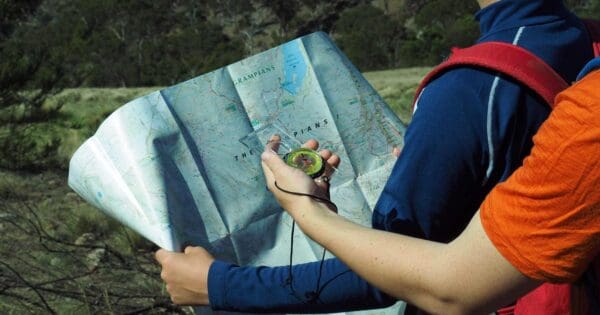Dreaming of your next adventure? Whether it’s travelling domestically, exploring abroad, embarking on a cruise or getting ready for a backpacker expedition, there is one thing all travellers must consider — travel insurance. Travel insurance may not be sexy and fun but it can save you a lot if something unforeseen occurs during your holiday or before your departure. For this reason, if you can’t afford travel insurance, you simple can’t afford to travel.
When should I buy travel insurance?
It is recommended that you get travel cover as soon as you book your trip because some levels of cover provide cancellation cover. This will cover you if your trip is cancelled due to unforeseen circumstances. It is always recommended you read the Policy Wording Documents to understand what circumstances are considered and excluded from this level of cover. If you’re not an early bird, you can purchase travel insurance any time prior to departure.
When travelling, what do you need to take with you in case you need to make a claim?
It is advisable that you take your travel insurance certificate and the relevant policy wording booklet away with you. If you are unable to print these documents, simply keep a record of your policy number, emergency medical assistance and claims line numbers.
I am going away a few times this year, what cover should I get?
If you are travelling several times this year, you may want to consider an annual multi-trip product. Depending on your circumstances and needs, this may be the more efficient and affordable option. Some insurance providers offer Annual Multi-Trip travel insurance for a varying range of trip duration.
I have pre-existing medical conditions, will I be covered?
Depending on your pre-existing medical condition, it may:
- Be automatically covered at no extra charge
- Require a medical loading for coverage
- Not be covered
If your condition cannot be covered, it does not mean you cannot get travel insurance, but all claims related to the condition will be excluded.
I plan to partake in sports and activities, am I covered?
This all depends on the type of coverage the insurer provides. Some travel insurance includes cover for over 90 sports and activities at no additional cost, including a range of hazardous activities such as bungee jumping and snorkelling. Check the Policy Wording Documents for full details of the covered sports and activities.
Will I be covered for scuba diving or trekking?
Again, this all depends on the insurer. With some insurance providers, scuba diving is covered at no extra charge in all International travel insurance policies. However, you need to be qualified, diving less than 30 metres and you must not be diving alone. If you are not a qualified scuba diver but are diving with an instructor, you are still covered providing you dive no deeper than 30 metres.
Some insurance providers also provide medical expense cover for trekking up to a maximum of 5000 metres. However, between 3000 and 5000 meters, you must be participating in the trek with a commercial operator, which is available to the general public. When you’re buying travel insurance, make sure you consider the finer details of your activities and check exactly what is covered.
Why should I get winter sports add-on cover?
When partaking in winter sports, there are risks that are unique with this type of activity, such as stolen ski equipment, lift passes, piste closures and more. In addition, if you get hurt while skiing, this add-on will cover the associated medical costs.
What if I am backpacking?
If you’re backpacking, make sure your travel is covered for this type of holiday. Some insurance providers offer Backpacker travel insurance for the spontaneous and adventurous traveller. This option has up to 18 months of continuous and comprehensive cover and provides coverage for some high-risk activities — like cascading, paragliding, skydiving and more.
When it comes to buying travel insurance, no question is a dumb question. It’s important to make sure you understand what you’re getting and that it matches your destination and planned activities. Don’t be afraid to talk through it with your insurance company of choice before purchasing.
Having the right insurance coverage is crucial for a safe and enjoyable hike in Australia. It can protect you from unexpected medical expenses, including ambulance costs associated with search and rescue operations. For a comprehensive guide on Bush Search and Rescue (BSAR) services in Australia, and the potential costs involved in medical extraction, see my post about Bush search and rescue (BSAR) in Australia.







